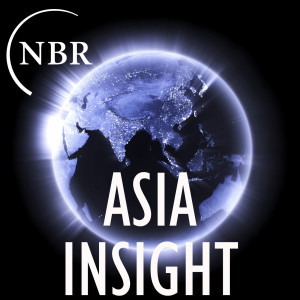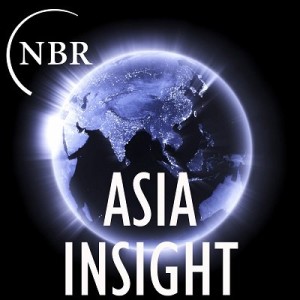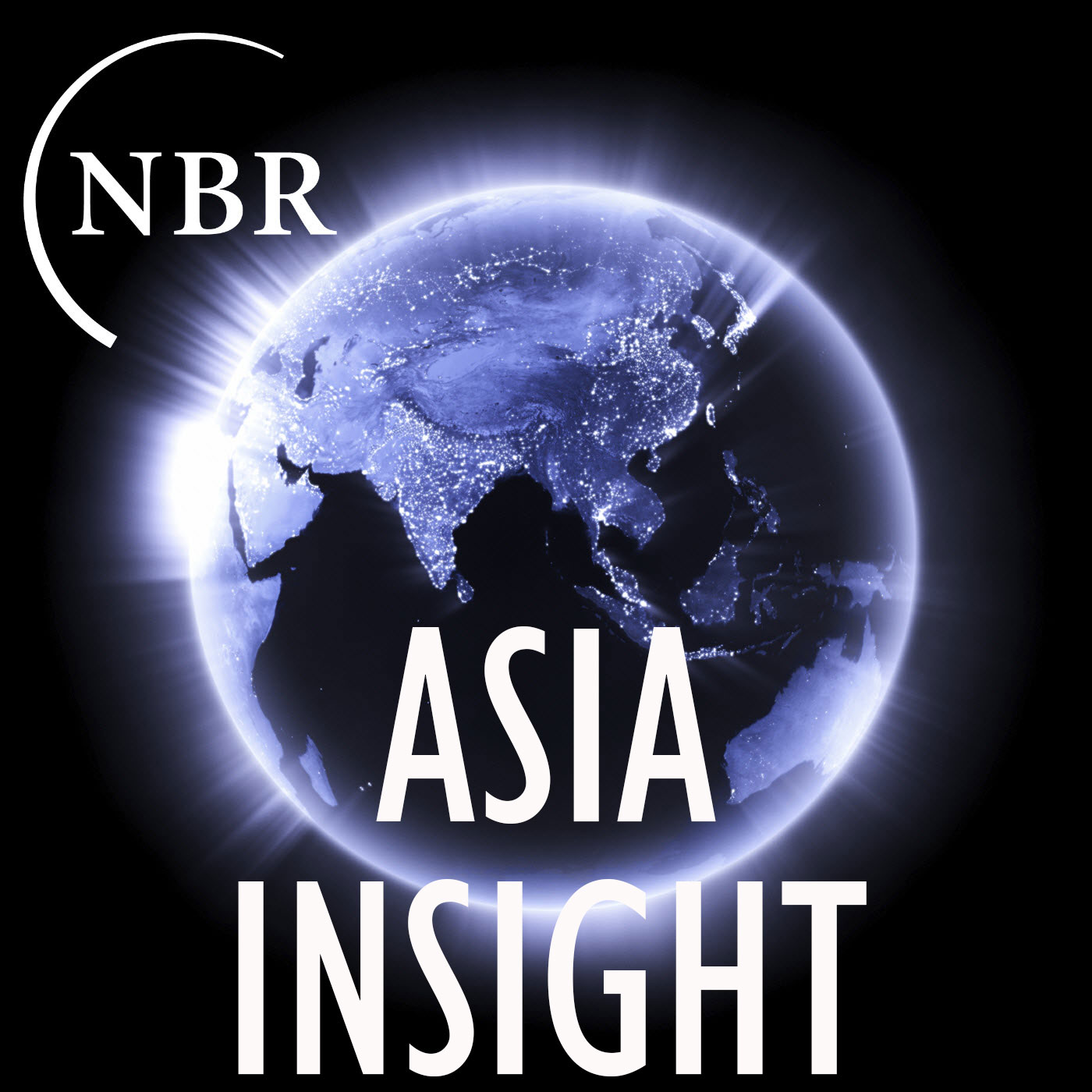Episodes

Thursday Mar 25, 2021
Pandemic Persuasions: Public Opinion and U.S.-China Relations
Thursday Mar 25, 2021
Thursday Mar 25, 2021
In this episode of Asia Insight, Karolos Karnikis speaks with Naima Green-Riley about her essay in NBR’s Emerging Voices on the New Normal in Asia series, “Pandemic Persuasions? American Public Opinion and U.S.-China Relations.” The episode examines trends in U.S. perceptions of China and discusses the implications for the U.S.-China relationship.

Friday Mar 12, 2021
A Principal Return: The United States and Trade in the Indo-Pacific
Friday Mar 12, 2021
Friday Mar 12, 2021
In this episode of Asia Insight, Congressman Charles W. Boustany Jr. leads a discussion on Indo-Pacific trade with Vice President of the Asia Society Policy Institute Wendy Cutler and former Deputy U.S. Trade Representative Robert Holleyman. They examine the Biden administration’s trade priorities, developments in digital trade agreements, and more, while seeking to answer questions about the United States’ role in the region in the wake of major multilateral trade agreements that are reshaping the rules of trade without U.S. participation.

Tuesday Feb 02, 2021
Sovereignty and the Seas: Maritime Disputes in East Asia
Tuesday Feb 02, 2021
Tuesday Feb 02, 2021
In this episode of Asia Insight, M. Taylor Fravel, principal investigator of the Maritime Awareness Project (MAP), discusses key maritime issues in East Asia related to the South China Sea, the East China Sea, Taiwan, and the U.S. role in the region. He is joined by two other members of NBR’s MAP team, Karolos Karnikis and John S. Van Oudenaren.

Thursday Dec 10, 2020
Exploring China's Push for a New World Order
Thursday Dec 10, 2020
Thursday Dec 10, 2020
In this episode of Asia Insight, Rachel Bernstein interviews NBR senior fellow Nadège Rolland and other contributors to the NBR Special Report “An Emerging China-Centric Order: China's Vision for a New World Order in Practice” about the types of mechanisms, institutions, norms, and rules China wants to see established in new international systems.

Monday Sep 28, 2020
A Renewable Alliance: The Future of U.S.-Japan Energy Cooperation
Monday Sep 28, 2020
Monday Sep 28, 2020
In this episode of Asia Insight, Dan Aum interviews senior advisor and research director of NBR’s Energy Security Program Mikkal Herberg. They explore various issues related to the energy relationship between the United States and Japan, including how the Covid-19 pandemic has affected global energy markets, what U.S. and Japanese policymakers have done separately and together to improve energy security, and the barriers to further developing energy infrastructure in the Indo-Pacific.

Thursday Sep 10, 2020
Diplomacy in Decline: How India Is Navigating China's Rise
Thursday Sep 10, 2020
Thursday Sep 10, 2020
In this episode of NBR’s Asia Insight, NBR nonresident fellow Arzan Tarapore interviews Manoj Kewalramani and Suyash Desai from the Takshashila Institution to discuss their report “An Indian Approach to Navigate China’s Rise.”

Thursday Aug 06, 2020
Promoting Good Governance in the Global Commons through the U.S.-Japan Alliance
Thursday Aug 06, 2020
Thursday Aug 06, 2020
In this episode of Asia Insight, NBR's senior director of public affairs Dan Aum interviews Dr. Kristi Govella to discuss the opportunities and challenges for U.S.-Japan cooperation in the global commons.

Thursday Mar 26, 2020
Japan's Balancing Act: Alliance Dynamics amid U.S.-China Competition
Thursday Mar 26, 2020
Thursday Mar 26, 2020
In this episode of Asia Insight, NBR's senior director of public affairs Dan Aum interviews Sheila Smith to discuss her chapter "Japan's Interests in an Era of U.S.-China Strategic Competition" from the new Strategic Asia volume.

Thursday Feb 13, 2020
U.S.-China Competition for Global Influence
Thursday Feb 13, 2020
Thursday Feb 13, 2020
In this episode of Asia Insight, NBR’s senior director for public affairs Dan Aum discusses the new volume in the Strategic Asia series, Strategic Asia 2020: U.S.-China Competition for Global Influence, with editors Ashley J. Tellis and Michael Wills.

Friday Dec 13, 2019
Securing the Belt and Road Initiative
Friday Dec 13, 2019
Friday Dec 13, 2019
In this episode of NBR's Asia Insight, NBR and the Daniel Morgan Graduate School host a discussion accompanying the release of NBR's special report, Securing the Belt and Road Initiative: China's Evolving Military Engagement along the Silk Roads. NBR's Alison Szalwinski moderates this discussion with Mathieu Duchatel, Kristen Gunness, and Nadege Rolland.

